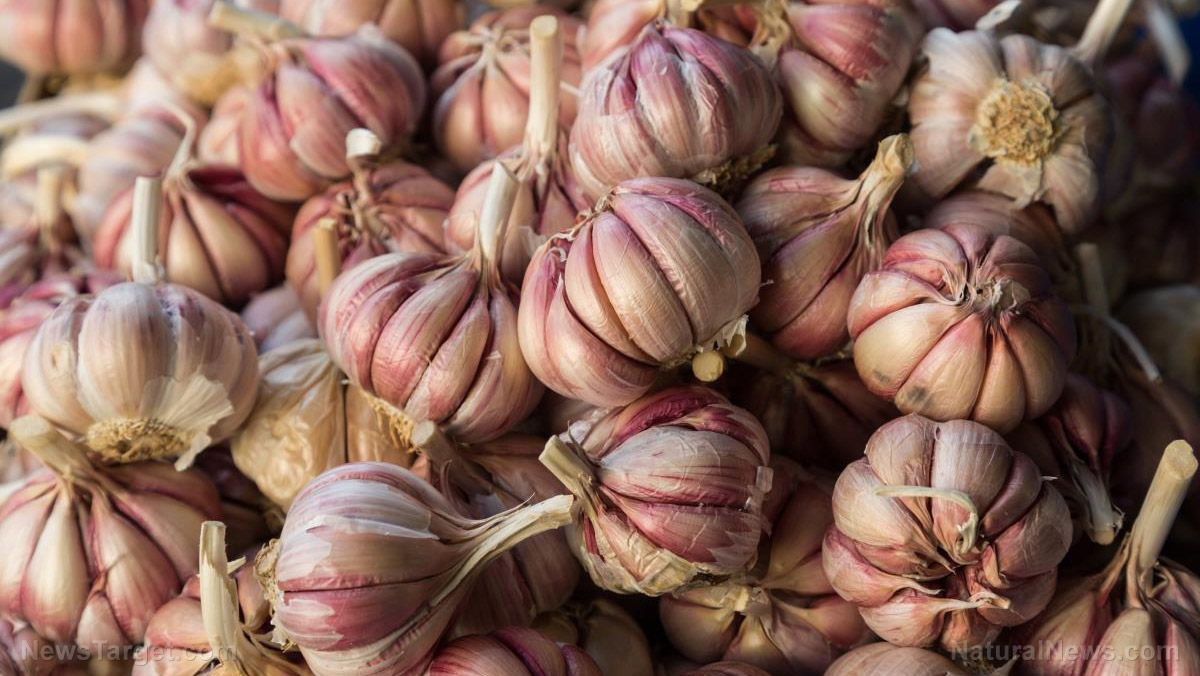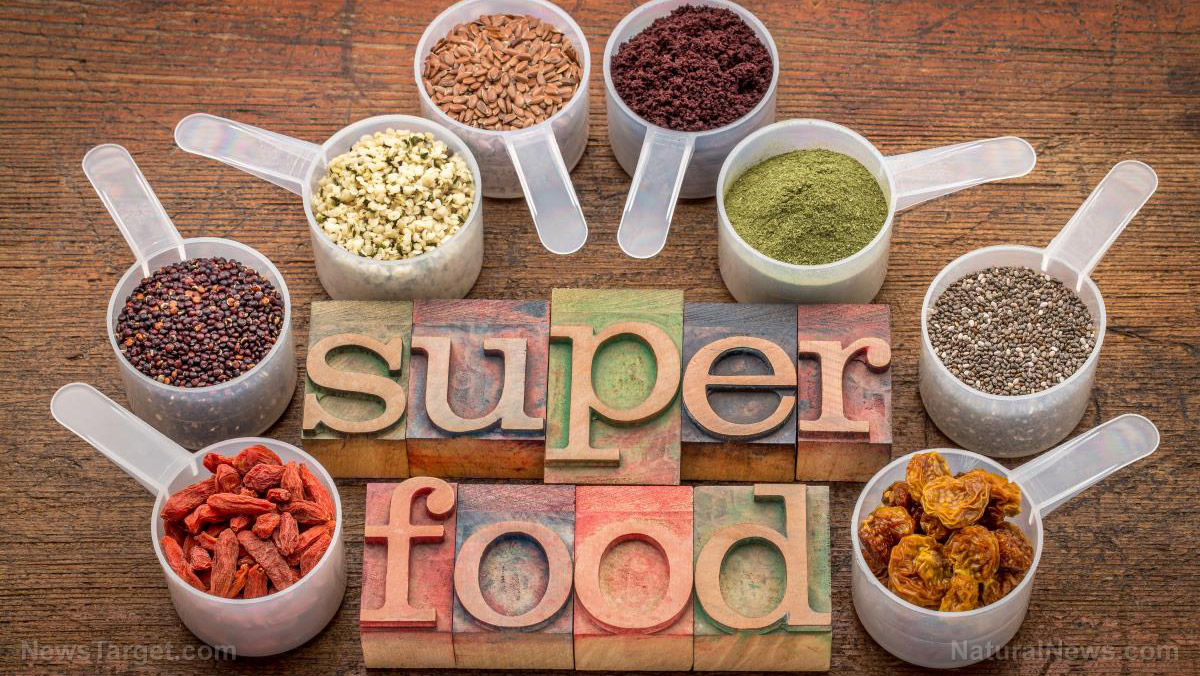 Parler
Parler Gab
Gab
Pumpkin: A natural source of vitamin A
Pumpkin is a type of winter squash that belongs to the same plant family as cucumbers and melons. It's technically a fruit since it contains seeds. However, in terms of nutrition, pumpkin is more like a vegetable. Pumpkins are usually round and orange, although their size, shape and color can vary depending on the variety. They have a thick outer rind that’s smooth and ribbed and a stem that connects the pumpkin to its leafy plant. Pumpkins are hollow, except for ivory-colored seeds covered in stringy flesh. They are native to North America and have a big role in two holidays. They are carved into jack-o'-lanterns for Halloween and cooked into pies for Thanksgiving dessert in the U.S. and Canada. Pumpkins are also grown on every continent except Antarctica. Pumpkin seeds, leaves and flesh are all edible.Pumpkin varieties
There are several varieties of pumpkins, such as:- Giant – Mostly grown for contests. Giant pumpkins are technically edible but are less flavorful than smaller pumpkins.
- Jack-o’-lantern – A large variety often used for carving.
- Miniature – Used for decoration but can also be cooked and eaten.
- Pie pumpkins – A smaller, sweeter variety.
- White – Used for decoration but can also be cooked and eaten.
Pumpkin nutrient profile
Pumpkin is a nutritious food and it contains different vitamins and minerals and relatively few calories. One cup (245 grams) of canned pumpkin provides:- Calories – 137
- Protein – 3 grams
- Fat – 7 grams
- Fiber – 7 grams
- Carbs – 19 grams
- Vitamin A – 209 percent of the Daily Value (DV)
- Vitamin K – 37 percent of the DV
- Copper – 28 percent of the DV
- Vitamin E – 22 percent of the DV
- Iron – 18 percent of the DV
- Magnesium – 13 percent of the DV
- Riboflavin – 10 percent of the DV
- Vitamin B6 – 10 percent of the DV
- Vitamin C – 10 percent of the DV
- Potassium – 10 percent of the DV
Pumpkin seed nutrition
Pumpkin seeds, also called pepitas, are also commonly eaten as a snack. A one-ounce (15 grams) serving of pumpkin seeds in their shell contains:- Calories – 86
- Fat – 7 grams
- Protein – 4 grams
- Carbs – 2 grams
- Fiber – 1 gram
- Copper – 21 percent of the DV
- Magnesium – 20 percent of the DV
- Phosphorus – 14 percent of the DV
- Zinc – 10 percent of the DV
Health benefits of pumpkins
Most of a pumpkin’s health benefits come from its vitamin and mineral content, along with its low sugar and high fiber content. Supports optimal eye health Pumpkins are full of beta-carotene, which helps keep your vision sharp by helping the retina absorb light. The combination of other vitamins and minerals in pumpkin may help prevent age-related macular degeneration (AMD). Study findings suggest that individuals with AMD could slow its progression by taking supplements containing zinc, vitamin C, vitamin E, beta-carotene or a combination of these nutrients. Supports optimal immune health The beta-carotene in pumpkin is partially converted into vitamin A, which can help protect your body from fight infections. Scientists have found that vitamin A is important for strengthening the intestinal lining, making it more resistant to infections. Additionally, vitamin C has a key role in immune health by strengthening the immune cells that respond when a pathogen is identified. Supports optimal heart health Eating a variety of fruits and vegetables is key to maintaining optimal heart health. Pumpkin contains specific nutrients that are good for heart health. One nutrient, potassium, may help reduce high blood pressure levels. Pumpkin also contains fiber that may help lower blood cholesterol levels by binding with the cholesterol in the foods you eat and preventing its absorption.How to cook pumpkins
Pumpkin is popular in sweet treats like custards, muffins, pancakes and pies, but it can also be used to make savory dishes. Use pumpkin to make soup or roast it with other vegetables. If you have canned pumpkin, add coconut milk and spices to make a creamy curry base. Pumpkin seeds are roasted for a crunchy snack or salad topping, while the flowers can be battered and fried. Here are more healthy pumpkin dishes to try at home:- Pumpkin spice latte overnight oats
- Pumpkin bread
- Pumpkin spice muffins
- Pumpkin dip
- Pumpkin chili
- Pumpkin risotto
Avoid pumpkin-flavored processed foods
Keep in mind that not all products that have pumpkin in their name are healthy. For example, store-bought pumpkin spice lattes lack the health benefits of eating an actual pumpkin. Many pumpkin-spice-flavored desserts also lack real pumpkin and only contain pumpkin pie spice. To reap the health benefits of pumpkin, cook with it at home and use other nutritious ingredients. Visit Superfoods.news for more articles about pumpkins and other nutrient-rich fruits and vegetables. Watch the video below to learn how organic pumpkin seeds can help support healthy blood sugar levels already within the normal range. This video is from the Health Ranger Store channel on Brighteon.com.More related stories:
Cinnamon found to help prevent Alzheimer’s disease. 12 Medicinal herbs and spices that can boost the immune system. Pumpkins can help alleviate vitamin A deficiency and prevent severe disease outcomes for measles. Sources include: Healthline.com ThePioneerWoman.com Brighteon.comThe life-saving properties of garlic revealed
By News Editors // Share
How sesame seeds could save your life
By News Editors // Share
Governments continue to obscure COVID-19 vaccine data amid rising concerns over excess deaths
By patricklewis // Share
Tech giant Microsoft backs EXTINCTION with its support of carbon capture programs
By ramontomeydw // Share
Germany to resume arms exports to Israel despite repeated ceasefire violations
By isabelle // Share










